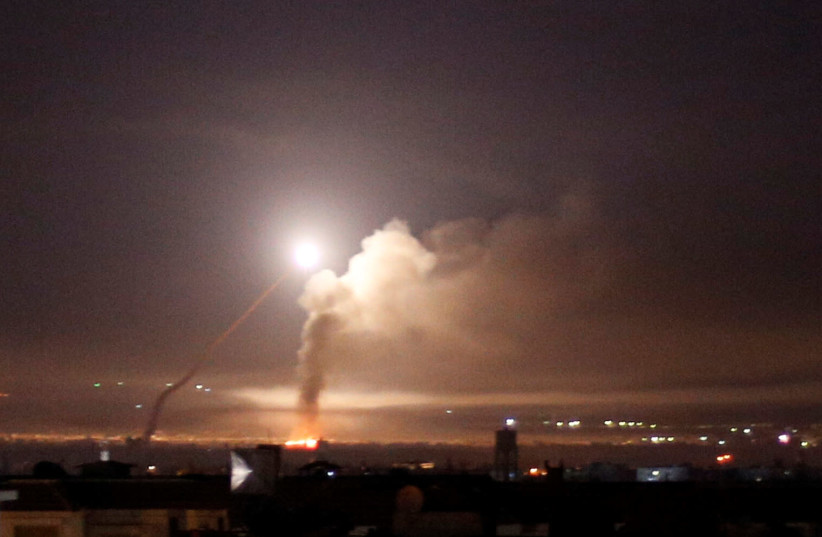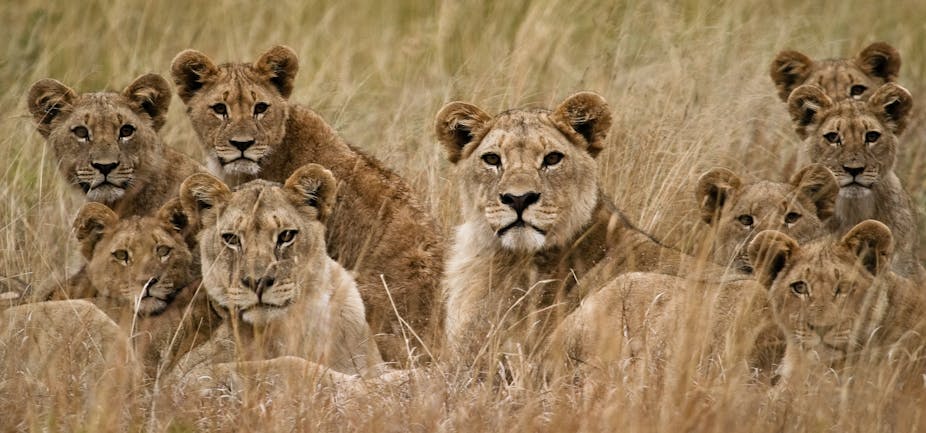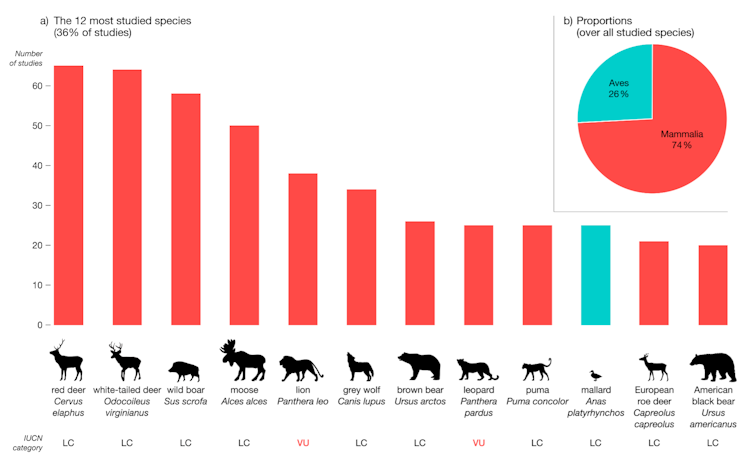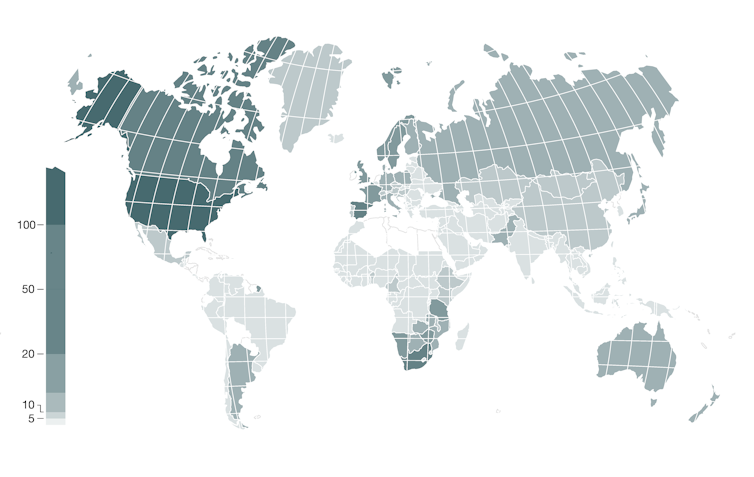Ballistic missiles target north Syria oil facilities in rare attack
Many alleged Russia and the Syrian regime were behind the attack which appears aimed at denying Turkish-backed Syrian groups from trading oil.


First published by GroundUp.
Zolani Matthews was announced as the Passenger Rail Agency of South Africa’s (Prasa) first Group CEO in six years by Minister of Transport Fikile Mbalula last Saturday. But Matthews is 64, and so cannot take up the position, because he is too old according to the rail agency’s policies.
Section 18 of the policy states that, “Subject to the provisions of the approved Retirement/ Provident Funds, an employee shall retire on attaining the age of 63 years … Employees may, however, on request and with the consent of Management remain in the service after attaining the age of 63 years on contract basis, provided that the operational needs of the Company require that an employee’s services be retained.”
By Prasa’s own rules, Matthews, cannot take up the role to which he has been announced. This particular issue is not unique to Matthews. In 2018, GroundUp reported on the strange circumstances surrounding former acting GCEO Cromet Molepo, who, at 62, was promoted against advice and made to retire after just 73 days in the apex role at the rail agency.
This has been the case since 2009, when then-group CEO Lucky Montana extended the age of retirement for all Prasa employees to 63, in accordance with Prasa’s provident fund policy. This retirement policy has not been changed since. In fact, in December 2020, it was re-emphasised in Prasa’s Policy on Total Rewards, which was recommended by Prasa’s Chairperson Leonard Ramatlakane and approved by board member and the head of HR subcommittee Advocate Smanga Sethene, and which guides the agency’s rules on remuneration and benefits.
GroundUp understands that the head of Human Resources Thandeka Mabija has been returned to act as group CEO while Minister Mbalula scrambles to solve the issue.
Prasa’s lack of permanent leadership (and a rotating cast of acting CEOs at the top of the agency) has been identified by the Auditor General as a key cause of the instability and irregularity that has led to the effective collapse of service at the rail agency.
Since the resignation of disgraced Lucky Montana, Prasa has had at least seven acting GCEOs, and one ‘Administrator’ (a position with no basis in law). Last week, Justice Raymond Zondo heard evidence from former Minister of Transport Dipuo Peters, who could not explain why she failed to appoint a permanent GCEO for two years.
In January 2019, then-Minister of Transport Blade Nzimande told MP Chris Hunsiger that a permanent GCEO would be appointed by April that year; this did not happen.
Minister Mbalula and Prasa Chairperson Leonard Ramatlakane both assured the Standing Committee on Public Accounts that Matthews’ appointment signalled a sea change at the agency. This new revelation rounds off an ignominious week for Minister Mbalula and Prasa’s new board and top leadership, in which they were castigated for inaction by Scopa, and rebuked by the Labour Court.
GroundUp has asked Prasa for comment, but this was not forthcoming at the time of publication in Daily Maverick. DM
https://www.dailymaverick.co.za/article/2021-03-05-prasas-new-boss-deemed-too-old-to-take-up-the-role/

South Africa is in a profound crisis and the ANC government has neither the will nor the ability to solve it. On the contrary, the ANC is indeed the main cause of the state the country finds itself in. The Covid-19 pandemic exacerbated the country’s national crisis; it did not cause it.
It is in fact a double crisis: a decay of the state and the downgrading of Afrikaners to second-class citizenship. We are first-class taxpayers, but we are treated as second-class citizens and are governed in a third-class way.
There are still no convincing signs that the ANC government is prepared to do anything about the causes of the crisis. The ANC’s racial policy, its socialist policies, mismanagement, and culture of corruption have even worsened since Mr Ramaphosa came to power three years ago.
We have to do it ourselves
The starting point towards a solution is that we realise that the ANC government cannot solve a crisis it has largely created itself. That is why we cannot wait for the government to provide solutions; we will have to tackle it ourselves. This is, however, no easy task. The challenge is to provide public services without state revenue amid a failing state that is governing against white people.
This is also a government that has already declared openly that it wants to use the pandemic to intensify its racial policy and it wants to use the crisis as a test run for a nationalised health care system and other radical policies.
However, the crisis has now deepened to such an extent that many of the ANC’s own supporters realise that their party is part of the problem rather than being part of the solution. That is why more and more black leaders are starting to look for solutions outside the government, and the Solidarity Movement is being approached more and more for help and advice. It is important to point out that these discussions are not with the government but are “horizontal” talks with groups and communities outside the government.
The message of communities stepping in to address pressing issues, rather to wait for government to act, is gaining traction across the board. This is a welcoming development, and we are proud to be involved with other role players to ignite community involvement to find sustainable solutions on important issues.
Mbeki Foundation
It is against this backdrop, that leaders from various organisations including the Thabo Mbeki Foundation and the Solidarity Movement also started to discuss how and in what way Afrikaners can contribute to addressing the country’s many crises. From our viewpoint, Afrikaners and white people have been pushed out everywhere across the state, municipalities and state-owned enterprises such as Eskom.
Consequently, we are not able to help as long as the government persists with its radical racial policies. Also, to treat Afrikaners as second-class citizens offers no motivation to help now that there is a crisis.
Secondly, Afrikaners are dominated by a demographic democracy and our cultural freedom needs equal rights with that of black communities. It is not democratic that every part of our lives is controlled by the ANC and that we have fewer rights than, for example, traditional black communities have that have their own territories.
We cannot help the country if we are prevented from doing so because of our race, or if our very existence as a community is threatened by our schools and universities being targeted. Afrikaners need equal recognition as a cultural community and do not want to be seen and treated as guilty criminals.
The ANC cannot expel us from all the major institutions, criminalise our community, discriminate against us and then ask us for help when its policies have landed the country in crisis. Moreover, the ANC’s mismanagement and corruption have destroyed its credibility and they have created such a crisis of confidence that Afrikaners have no reason to believe their promises.
Mutual recognition
For this reason, mutual recognition and respect would be a prerequisite for restoring relationships of trust in the country. We are not going to help people who insult us and do us injustice all the time. Afrikaners are furious about the poor government, but we still love the country. We also realise that the total decay of the country will also be to our own detriment. No one will be able to exist in a country that is falling into disarray.
That is why we are prepared to work together towards solutions, provided that space is also created for our interests. Talks with organisations such as the Mbeki Foundation are not based on the same views but on the same interests.
Although we differ about many fundamental issues, it is in the interest of both groups that the country does not fall into decay, that services in towns are running, that crime is tackled, that corruption be stopped and that race relations do not deteriorate further. That would only be in the interests of instigators like Julius Malema.
It is also in everyone’s interest that there is food security, that there is funding for agricultural production and that Afrikaners’ fundamental interests are safe. The talks, and the framework of understanding that has been reached, does not mean that solutions have been found to all the problems yet. After all, the Mbeki Foundation does not rule the country, but the foundation is influential, nevertheless.
Therefore, this is not the end of the problems but the beginning of a process of finding solutions. There is no guarantee that it will succeed but without an attempt to resolve the crisis, failure is guaranteed.
Afrikaners need political space to gain more recognition for everything we have established in practice. We are still not going to ask for prior permission to exist, but recognition for the cultural spaces we have established such as colleges, universities, schools and towns such as Orania remains important.
Building yourself and building with others
These talks certainly do not mean that our strategy of building and protecting will change. If we can succeed with this negotiating and bridge-building, we will be able to build even faster and we will be able to protect even better. We will build ourselves to stay on here, but we will also build with others who give us the space to be Afrikaners to the full. As Christians we will fulfil our duty towards our community, but we also want to reach out to our fellow human beings in need.
We do not see ourselves as superior to other communities, but we are not subordinate to them either. That is why we believe in equal citizenship, and we approach the future in a spirit of mutual recognition and respect. We are free citizens, not obeying subjects.
Flip Buys is chairman of the Solidarity Movement.
https://www.politicsweb.co.za/opinion/a-perspective-on-the-afrikaner-talks-with-the-mbek

Over the past few years, I have repeatedly said that there are societal problems that we as South Africans tend to shy away from. We shy away from them because they are controversial and unpopular. Whoever is courageous enough to raise or discuss them in public platforms, is vilified, hounded, and called all sorts of names.
And that name-calling is an utter shame – it is a disgrace. Because what it indicates, is that we are dishonest to ourselves as citizens of South Africa. We only want to hear what sounds good in our ears, and that which does not challenge our beliefs and practices. The issues we avoid talking and doing something about, tend to have a damaging impact on our society, slowing our socioeconomic progress.
One of the ills of South Africa's society that I have been vocal about, and for which I have been attacked for, is the family breakdown – caused by the absence of fathers in homes across the country.
This is an issue at the core of what slows down our socioeconomic progress. Yet, sadly, famed personalities in the media, politics and academia never dare talk much about it.
Very disturbing and heartbreaking statistics were released by Stats SA last week. The statistics show that only 31.7% of black children live with their fathers in South Africa. Compare this to 51.3% for Colored’s, 86.1% for Asian/Indian and 80.2% for Whites.
The numbers on black children should unsettle us all. A great deal of research has been done around the world on the impact of fatherlessness on societies. That research shows that children who grow up without fathers are more likely to go astray in life. Boys are more likely to become criminals and end up in jail, and girls are more likely to fall pregnant in their teens. Both boys and girls are also, more likely to drop out of school.
Now I have heard many explanations or justifications on why black children do not live with fathers in their homes. The most common, is that it is because of the apartheid legacy. And the other, is that fathers are away to work or to look for work. All not convincing.
In 2018, Stats SA published statistics that showed 62% of children born in the country in 2017 had no details of fathers recorded at the time of birth. The majority of these children must be black. Most of the mothers of these babies, 73% of them, were between the ages of 20 and 34. These are young mothers who never lived their adult lives under apartheid. I bet the fathers that were missing were also in the same age range. Now that information alone indicates that blaming apartheid is ludicrous. There is a disturbing trend that we must face up to as citizens.
When will we stop blaming apartheid for everything? I find this very irresponsible from our part.
I do not believe migrant work is really a concerning factor on South Africa's fatherlessness crisis. It is a factor, but a very minor factor. Many, if not most couples live near each other these days – especially in townships that are next to big cities. Gone are the days where women would stay in rural areas and men go to work in Johannesburg or any major city, leaving their wives and children behind. No millennial does that. That practice is no longer widespread. It may still exist with miners - and manufacturing workers. But on net balance such a practice is a minuscule factor on fatherlessness, at least in my observation.
There is a big cultural problem amongst South Africa’s black population that we need to confront. The habit of people making children they cannot afford - on some occasions with multiple women - is widespread. People just make children with no plan and no formal union or marriage with their partners. One lady once told me she had her child at an early age just to test if she is fertile. I was astonished.
There are people who argue that the government’s child support grant induces unemployed people to make babies. I have not seen credible studies that prove this assertion - and Africa Check has dismissed it as a myth. But the thinking behind the assertion makes sense. If you are unemployed and you can make babies to receive income why should you not make them? And there are few people who choose to have babies for the purposes of accessing government's child support grants.
My view has always been that the government’s child support grant is a terrible program that needs to be phased out of our society. There is nothing appealing about it. Whether it induces people to have babies or not does not matter - there is just nothing appealing about it. We should strive for a society where people raise their children with their own money they earn from their economic productivity in the private sector. That should be our major goal.
But in a society where the African National Congress (ANC) and Economic Freedom Fighters (EFF) dominate politics, such a society is unlikely to be a reality in my lifetime.
Now some people ask: what can be done to address this fatherlessness problem? Well from a government policy perspective very little can be done, in my opinion. The government can only go as far as rolling back child support grants - because they do induce pathological behavior. That would need a plan and timeline targets. A drive or campaign, by the government, to reconnect fathers with their children would also help.
But let us be honest, any government intervention will not help if pathological behavior persists, and men cannot zip up their pants or use protection during sexual activities. The greatest responsibility lies with us as individual citizens. The cultural issues can only be effectively resolved by blacks themselves.
Look, no matter what the causes are for the high rates of fatherlessness in South Africa, my concern is that it is an issue that is not receiving much attention from the public. It is disgrace that we keep talking about inequality and poverty, and then ignore the topic of fatherlessness that contributes to our society's dysfunction.
So long as the rates of fatherlessness remain this high amongst blacks, it will be a struggle for them to catch-up to other racial groups on income and prosperity. The inequality that many people complain about, will be with us for a very, very long time.
Phumlani M. Majozi is a senior fellow at African Liberty. His website is phumlanimajozi.com Follow him on Twitter: @PhumlaniMMajozi
https://www.politicsweb.co.za/opinion/where-are-black-fathers-in-south-africa
Oorgrens veiligheid
A farm attack took place on 4 March 2021, at 23:24 on a smallholding in Rhenosterfontein, Rustenburg, in the North West Province of South Africa. Four attackers, two with firearms and one with a panga overpowered, assaulted and tied up a male victim.
The attackers gained entrance just as the victim was closing his door.
The home was ransacked and a number of household items stolen. After the alarm was raised all role players, including Buffelspoort security responded, but there were no arrests.
The man was not seriously injured but has been left traumatised. There is no other information available at this stage.
https://southafricatoday.net/south-africa-news/north-west/farm-attack-four-armed-attackers-assault-tie-up-man-rhenosterfontein-rustenburg/
South Africa Today – South Africa News
Oorgrens veiligheid
A farm attack took place on 4 March 2021, at 03:00, in Koperfontein, near Derby, in the North West province of South Africa. At least three attackers broke into the farmhouse and attacked a family. The family was severely assaulted by the attackers one of which used a steel pipe to beat them. The family was then tied up.
The attackers said that one person had to be killed. Fortunately a female victim managed to send a message to another family member, her daughter, who was on the top floor of the house. The attackers threatened to rape and shoot her when they realised she had sent a message.
But the message in fact caused the attackers to flee.
The daughter on the top floor contacted neighbours for assistance and the necessary roleplayers responded. A firearm and three phones were stolen in the attack.
The police are investigating but there have been no arrests. There is no other information available at this stage.
South Africa Today – South Africa News
https://southafricatoday.net/south-africa-news/north-west/farm-attack-family-assaulted-with-a-steel-pipe-tied-up-robbed-koperfontein/
Changes to the way Hong Kong chooses its leaders look
likely to leave the territory’s residents will even less say
over how they’re governed.
![Hong Kong Chief Executive Carrie Lam chats with a military delegate ahead of the NPC's opening session. The parliament is discussing more changes to the territory's elections [Carlos Garcia Rawlins/Reuters]](https://www.aljazeera.com/wp-content/uploads/2021/03/2021-03-05T052110Z_702955720_RC2T4M91VR3I_RTRMADP_3_CHINA-PARLIAMENT.jpg?resize=770%2C513)
Hong Kong, China – The annual gathering of China’s National People’s Congress (NPC), the country’s parliament, is traditionally the forum where the leadership ticks off the party’s accomplishments in the past year and sets economic targets for the next 12 months.
But also on the agenda this year is the political future of Hong Kong.
The agenda includes an item euphemistically entitled “improving the electoral system of Hong Kong”.
In reality that’s likely to be a radical overhaul of that system.
There was shock and awe for Hong Kong at the last NPC, when the new national security law for the territory was unveiled. Now we are about to get more of the same.
China’s top official in Hong Kong, Xia Baolong, gave clear signals about what’s to come last week when he addressed a conference outlining the criteria “ for patriots ruling Hong Kong”.
Xia said the power to govern the semi-autonomous region must lie in hands of “patriots”, as it was the “fundamental principle” of fulfilling “one country, two systems”. He said people in almost all countries and regions demonstrate patriotism when running for public office, except it seemed in Hong Kong.
This means people who criticise China or the Communist Party or who refuse to declare their love for the motherland, will not have a future in Hong Kong politics or indeed its judiciary, for that matter.Attention now is focused on district councils, the lowest rung of government in Hong Kong.
They mostly deal with mundane issues like parking and rubbish collection. It’s hard to think of another place in the world where such lowly bodies now command so much international attention.
The reason: 17 out of the 18 councils are controlled by the pro-democracy camp. If some district councillors are to be deemed unpatriotic, then what about the electors who voted overwhelmingly for them in the 2019 elections? How will they be defined?
In many ways, these councils represent the remnants of the territory’s political opposition, which is no longer represented in parliament.
The speculation is that an election committee will be established to screen candidates for all future elections.
It’s also forecast that district councillors will no longer have seats on the committee that “elects” the chief executive.
If the speculation is to believed, he or she will likely be chosen by consultation rather than election.
 The changes come as dozens of pro-democracy politicians and activists were charged with ‘subversion’ under the national security law and mostly denied bail [Tyrone Siu/Reuters]
The changes come as dozens of pro-democracy politicians and activists were charged with ‘subversion’ under the national security law and mostly denied bail [Tyrone Siu/Reuters]This raises serious questions over the credibility of the next election, which has reportedly again been postponed and pushed back until 2022.
So depending on your viewpoint, this represents a dramatic dismantling, or rebuilding, of Hong Kong’s electoral framework.
And it is happening against a backdrop of the continuing trials involving almost the entire leadership of the pro-democracy camp.
China insists none of this contradicts the promises it made to Britain and the international community before the handover in 1997.
https://www.aljazeera.com/news/2021/3/5/hong-kong-adrian-brown
Adrian Brown is Al Jazeera’s correspondent in Hong Kong.

In sub-Saharan Africa, almost 1,400,000 km² of land spread across many countries — from Kenya to South Africa — is dedicated to “trophy” (recreational) hunting. This type of hunting can occur on communal, private, and state lands.
The hunters – mainly foreign “tourists” from North America and Europe – target a wide variety of species, including lions, leopards, antelopes, buffalo, elephants, zebras, hippopotamus and giraffes.Debates centred on the role of recreational hunting in supporting nature conservation and local people’s livelihoods are among the most polarising in conservation today.
On one hand, people argue that recreational hunting generates funding that can support livelihoods and nature conservation. It’s estimated to generate US$200 million annually in sub-Saharan Africa, although others dispute the magnitude of this contribution.
On the other hand, hunting is heavily criticised on ethical and moral grounds and as a potential threat to some species.
Evidence for taking a particular side in the debate is still unfortunately thin. In our recently published research, we reviewed the large body of scientific literature on recreational hunting from around the world, which meant we read and analysed more than 1000 peer-reviewed papers.
We used this vast body of information to summarise the diverse implications of hunting for nature conservation and the livelihoods of people.
We found that studies quantified the revenues generated by hunting, but they often stopped short of determining on how these revenues benefited conservation and local people.
Likewise, there is only a little research documenting the effectiveness of recreational hunting areas for conserving ecosystems, and who really benefits from the revenues generated.
Ultimately, we still do not have enough evidence to answer the pressing questions of where and how hunting contributes to sustainable conservation efforts that also benefit local people. While it is not self-evident why this is so, it is important that future research addresses these gaps.
A lot of the research we examined focuses on how hunting affects a particular species. The most-studied species are large mammals from North America, Europe, and Africa – such as red deer, white-tailed deer, wild boar, moose, and lions. Of these, only the lion is of conservation concern.

The impacts on the populations targeted by hunters varied among species. For example, red deer hunting appears to be sustainable, while there is evidence that reindeer hunting has caused some populations to decline. Hunting did not cause population declines in studies of 17 African hoofed mammal species, with only eland declining due to hunting.
The impacts of hunting also varied within species, with lions being a good example.
Evidence shows that while lion hunting is well-regulated and sustainable in some places – such as Niassa National Reserve in Mozambique – in other places it is detrimental to local populations. For example, the lion population in Zambia’s South Luangwa National Park declined from 125 lions in 2009 to 94 in 2012. Trophy hunting was the leading cause of death, with 46 males harvested. These declines resulted in a trophy hunting ban in 2013.

Hunting has also negatively affected carnivores elsewhere in the world. For example, puma (cougar) populations in North America and brown bears in Europe.
Unfortunately, we also found that while the literature is extensive, there were biases toward certain continents and either “charismatic” species, or species that are not under imminent threat of extinction.
Far less research has been done to measure the broader impacts of hunting on ecosystems. Or how hunting contributes to, or detracts from, the livelihoods of local people.
In terms of livelihoods, research from South Africa and Namibia concluded that stopping hunting would negatively affect conservation initiatives and local livelihoods by the loss of the major revenue it generates. Trophy hunters spend US$250 million in South Africa each year.
Recreational hunting was particularly important in areas where ecotourism was not a viable alternative because of a lack of infrastructure, rare wildlife, or a dearth of spectacular scenery, such as much of the Northern Conservation Zone in Botswana.
In West and Central Africa, there are various constraints to the revenue that trophy hunting can generate. These include few remaining trophy species – such as lions – and policies, such as the European Union’s bans on the imports of trophies. There are also high costs associated with countering threats from poaching and agricultural encroachment.
These constraints have meant the revenue generated from trophy hunting are not enough to cover the costs needed to manage hunting blocks effectively. Trophy hunting, for example in Cameroon, wasn’t enough to provide a meaningful contribution to local communities.
In terms of the broader impacts of hunting on ecosystems, we found evidence for some benefits from North America, Europe, and Africa.
Most evidence suggests that habitat management for game birds is positive for many other species in agricultural landscapes. For instance, in North America, fees from waterfowl hunters have made it possible to conserve or restore more than 50,000 km² of wild bird habitat.
However, recreational hunting can also mean that predators are killed to make way for popular game species kept at artificially high densities via breeding and introduction programs.
In South Africa, benefits generated from trophy hunting of white rhinos incentivised landowners to conserve and restore this species across more than 16,000 km². This helped conserve other species and ecosystems.
Even though the literature on recreational hunting is extensive, research must be extended towards less-charismatic species and to all continents where recreational hunting happens. For example, we need a lot more evidence to support or debunk some claims that hunting increases the quantity and quality of conservation interventions.
Likewise, there is still only limited research addressing questions pertaining to the sustainability of recreational hunting, who benefits from it, and how local people feel about it. Assessing the role of recreational hunting in diverse contexts is essential to develop equitable ecosystem conservation and restoration practices, while simultaneously contributing to the livelihoods and aligning with the values of local people.
https://theconversation.com/recreational-hunting-conservation-and-livelihoods-no-clear-evidence-trail-155587